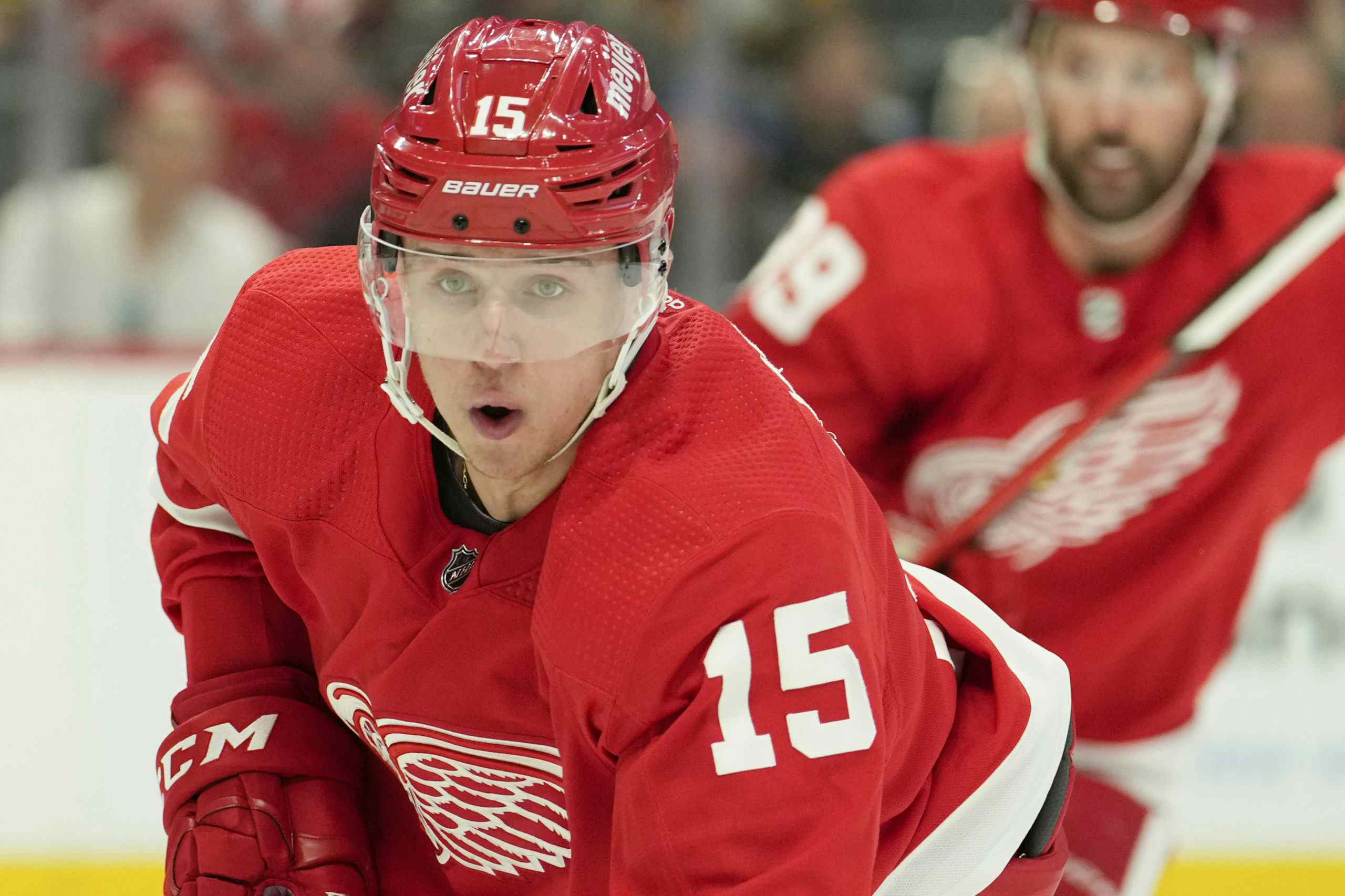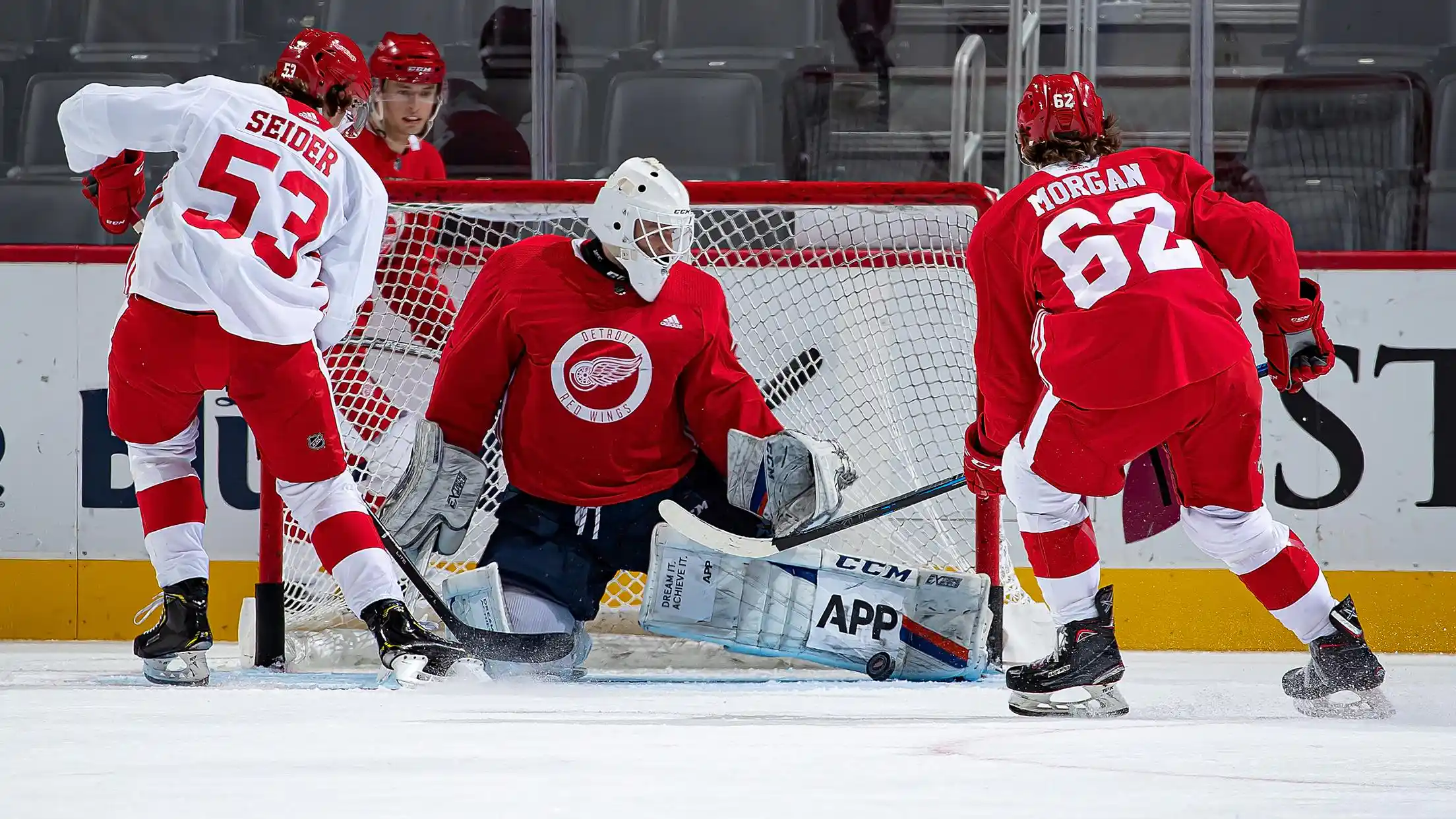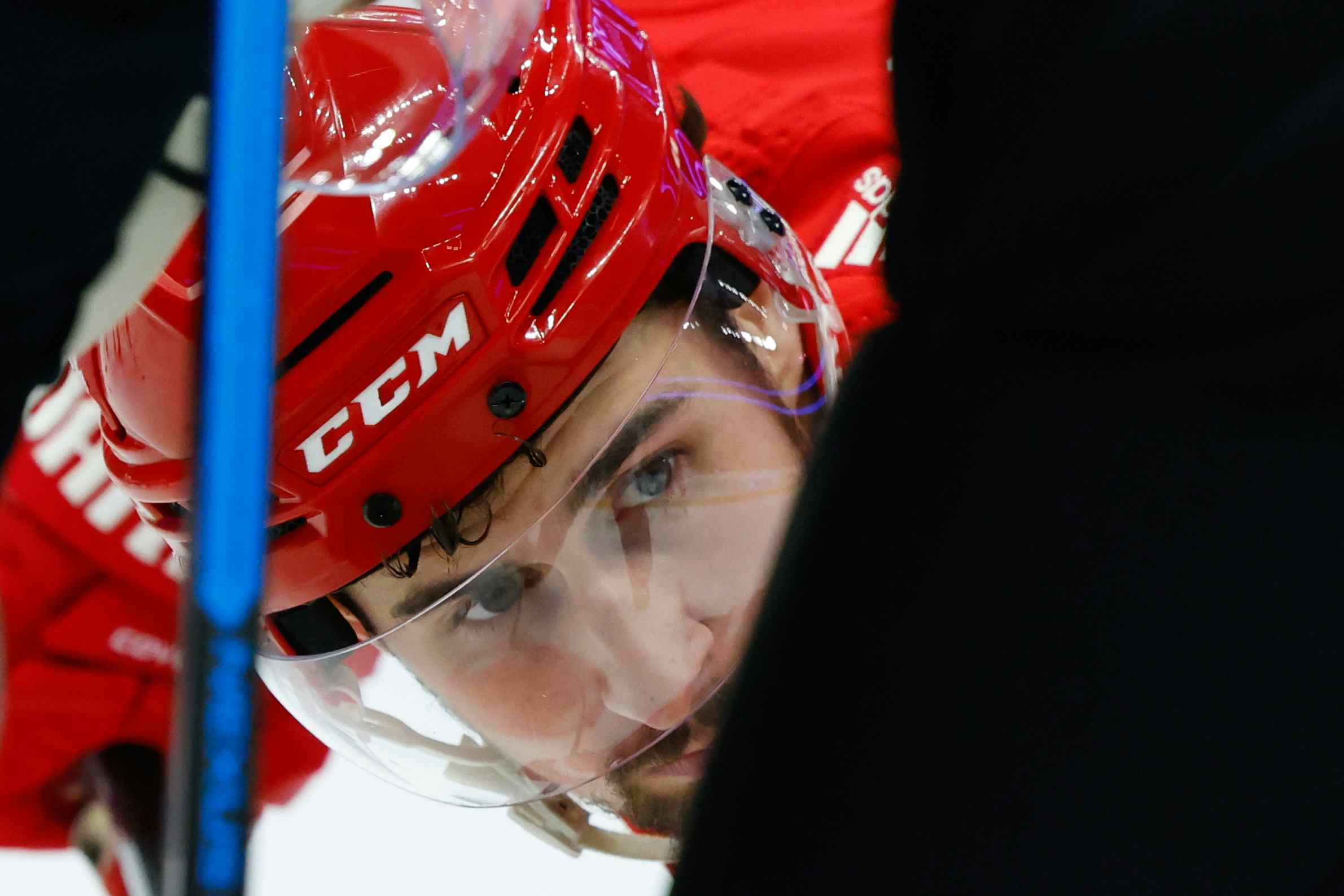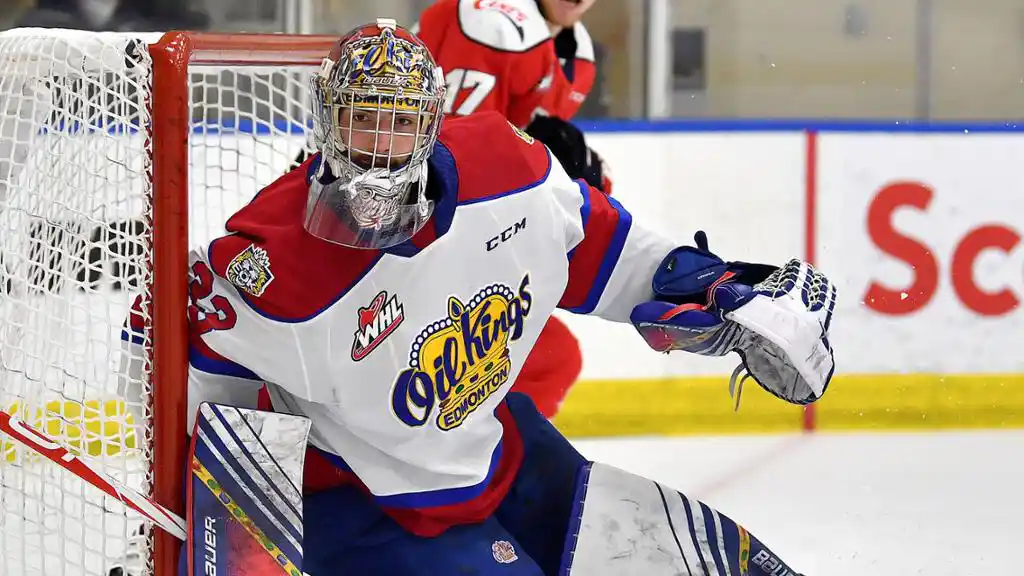Fighting should never be the answer for Dylan Larkin
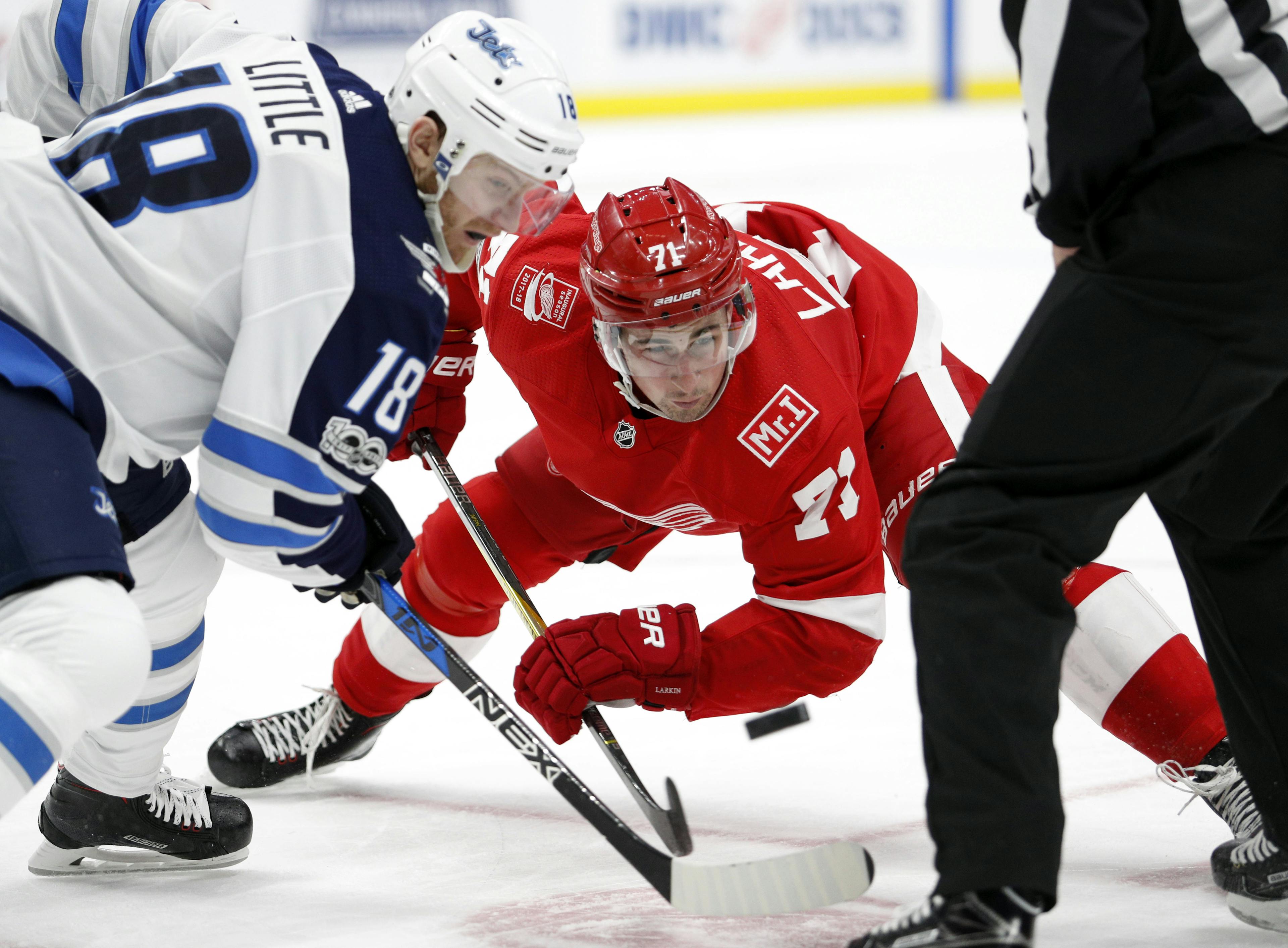
By Tom Mitsos
5 years agoThe Detroit Red Wings are struggling to begin the 2018-19 season.

It doesn’t take a rocket scientist to figure that out.
They are 25th in goals per game (2.2), last in goals against per game (4.4) and are one of only two teams who have yet to record a win.
We knew the Red Wings were going to have a hard time keeping pucks out of their net. Any team that starts between three and four rookies on defense is going to see growing pains, but losing Henrik Zetterberg — albeit a lesser version of the 2008 Conn Smythe winner — is a big blow to a rebuilding team.
In Zetterberg’s absence, Dylan Larkin has taken the next step toward becoming the future captain of the Red Wings. He was named an alternate captain this season, rotating duties with Frans Nielsen, who will wear the “A” on the road while Larkin wears it for home games.
Larkin isn’t a vocal person, but neither was Zetterberg before him and Nicklas Lidstrom before that, so I don’t have any worries about how he’ll fare in a leadership role. However, I think Larkin is putting too much of the burden on himself in regards to the team’s lack of success.
Larkin had some interesting quotes after Saturday’s 8-2 drubbing at the hands of the Boston Bruins. According to the Detroit Free Press’ Helene St. James, Larkin said he regretted not fighting Noel Acciari after the Red Wings allowed a late goal in the first period to go down 1-0. Larkin told St. James:
A big play that I’m kicking myself about is after they scored their first goal, end of the period, I don’t even know who it was, he wanted to fight, and I didn’t answer the bell. I think if I did, it could have changed the momentum in the game and maybe got some momentum back on our side and showed us that we were ready to battle — we’re on the road and we’re not intimidated. I could have did that and helped our team either feel more confident or just to show those guys over there that we’re here to battle.”
You can see the sequence of events that happened below. Acciari hit Larkin, who went after him and threw a punch with his glove on, Acciari threw his gloves off preparing to fight, but the referee grabbed Acciari and skated away before Larkin could continue to engage him.
Larkin continued:
I didn’t answer the bell and it’s not something that’s the total reason why we lost. But if I would have did that, it could have changed the game in our favor and made us maybe feel a little more confident.
I’ll preface my retort by saying I like that Larkin feels like he is responsible for the way the team plays. Good leaders take ownership of the good and bad, and Larkin certainly has taken ownership of the bad situation.
However, if I’m Jeff Blashill, Larkin is the last guy I want fighting in that situation. Aside from the fact Larkin doesn’t even need to go after Acciari in that situation, as it was a legal hit, the Red Wings need Larkin to stay healthy and score goals, not fight the opposition’s tough guys and attempt to swing momentum.
The only momentum swing Larkin should be thinking about is by scoring goals or setting up his teammates, and by fighting, Detroit loses its top-line center for five minutes, while Boston loses a fourth-line winger. The Bruins will take that tradeoff all day.
I understand Larkin acknowledged that him not fighting wasn’t the sole reason the Red Wings lost, but Larkin shouldn’t even be thinking about fighting at all, much less to try to swing momentum.
If Jonathan Ericsson wants to get into a fight to swing momentum, by all means, let the big man fight.
One of Larkin’s redeeming qualities is his speed, and rather than trying to use his strength to fight players who are more acclimated to fighting, he needs to use his speed to help his team score.
The Bruins have given the Red Wings fits over the past few years, using their physical play to stymie and frustrate Detroit, and while physical play can be successful, it’s not the only way to win.
More teams now rely on speed and skill rather than hard-nosed physical play — or in this case, a well-timed fight — to win games.
Larkin has to understand that being a leader doesn’t mean looking for a fight to motivate your team if you’re losing. It means leading by example, staying out of the box and letting the other team make boneheaded plays.
Larkin wants to make an impression on his teammates as a leader despite being one of the younger players, and I understand that.
Risking injury as one of your top point producers is not the way to go about it.
Recent articles from Tom Mitsos

